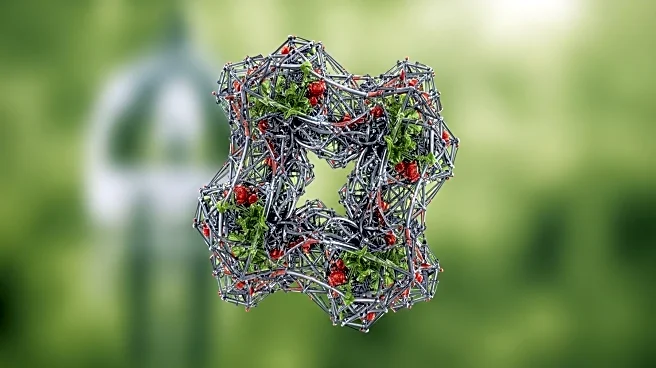What's Happening?
A review led by Dr. Yong Jiang and collaborators from various universities explores the potential of biohybrid systems in sustainable chemical synthesis. These systems integrate living microbial cells with advanced materials science to produce chemicals efficiently and cleanly. By leveraging renewable energy sources like solar and mechanical energy, biohybrids activate abiotic components to facilitate electron transfer to microbial cells, converting simple feedstocks into valuable compounds. The review highlights microbial electrosynthesis (MES) as a key technique, using biohybrid electrodes to fix CO2 into chemicals and biofuels under ambient conditions. Recent advances include formate-mediated tandem catalysis, enhancing MES efficiency by using formate as an electron shuttle.
Why It's Important?
Biohybrid systems represent a significant advancement in sustainable chemical manufacturing, offering a greener alternative to traditional methods. By utilizing renewable energy and biological catalysts, these systems reduce the carbon footprint and energy consumption associated with chemical production. The integration of microbial electrosynthesis and formate-mediated processes could revolutionize industries by providing scalable, eco-friendly solutions for chemical synthesis. This approach aligns with global efforts to address climate change and reduce industrial emissions, potentially transforming the chemical industry into a more sustainable sector.
Beyond the Headlines
The development of biohybrid systems also raises ethical and environmental considerations. The ability to convert waste carbon streams into valuable products could significantly impact waste management and resource utilization. Additionally, the interdisciplinary nature of biohybrid research fosters collaboration across scientific fields, driving innovation and technological advancement. As these systems become more prevalent, life cycle assessments and techno-economic analyses will be crucial in evaluating their long-term sustainability and economic viability.









